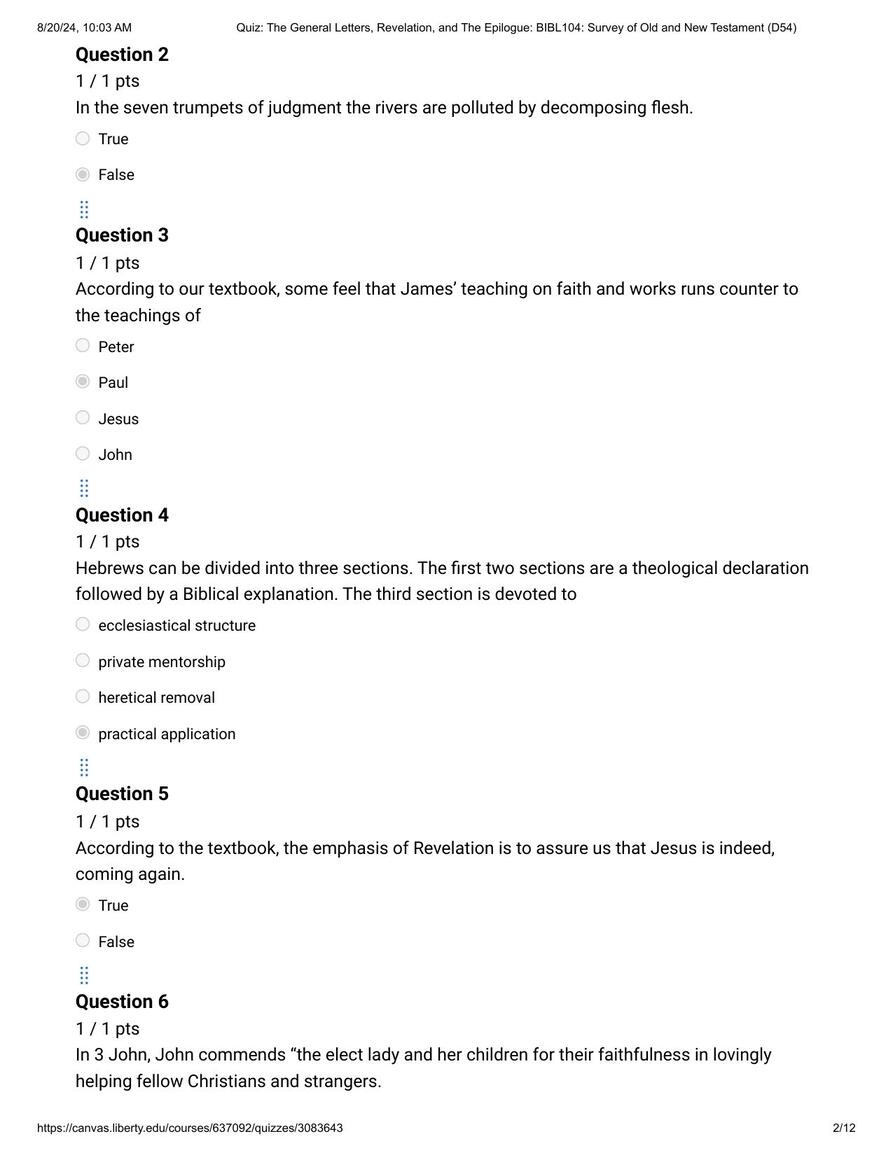BIBL 104 Discussion 2
BIBL 104 Discussion 2 Liberty University Answers
Topic: Pulling from our readings in Everyday Bible Study, chapters 24–25, answer both prompts below in 2 separate paragraphs (each in 200 words or more).
1. Understanding the importance of the historical context of a passage when studying Scripture is often overlooked by the contemporary reader. Given that, explain and explore the following: 1. Why is the historical context an important consideration? 2. What are some the key actors related to the historical context? 3. Give a simple, straightforward example from Scripture of how the historical context aids our understanding of a verse or passage. Cite the verse or passage (The post, not counting the passage, must be 200 words or more).
2. Another important consideration while studying Scripture is the literary context. Like the historical context, it is often not a factor readers are familiar with or properly identify. Given that, explain and explore the following: 1.
- Why is the literary context an important consideration?
- Differentiate between the historical and literary context.
- Give a simple, straightforward example from Scripture of how the literary context aids our understanding of a verse or passage
(The post, not counting the passage, must be 200 words or more). The 2 prompts must total 400 words or more.
2016
Topic: In Chapter 6 of the Duvall & Hays text, the authors discuss the importance of the literary context. Throughout the chapter, they once again identify the key aspects we should consider related to the literary context when we engage the Bible. Pulling specifically from the Duvall & Hays text and synthesizing into your own words, write a 250–300-word response to the 3 prompts below. Once again it may be helpful to you to bring in some of your personal experiences with these issues in light of what we have learned from our reading.
Answer the 3 prompts in 3 separate paragraphs, using about 100 words each.
What happens if you carefully consider the surrounding context of a passage, but ignore its literary genre?
Besides those examples cited in this chapter, what are some instances of interpreting a biblical passage apart from its immediate context? That is, give and explain an example of how ignoring the immediate can lead to an erroneous understanding or application of the text? Cite the specific passage you are discussing in your post. (ex. Rom. 6–16).
When is topical preaching contextually valid? When does it disregard and violate context?
